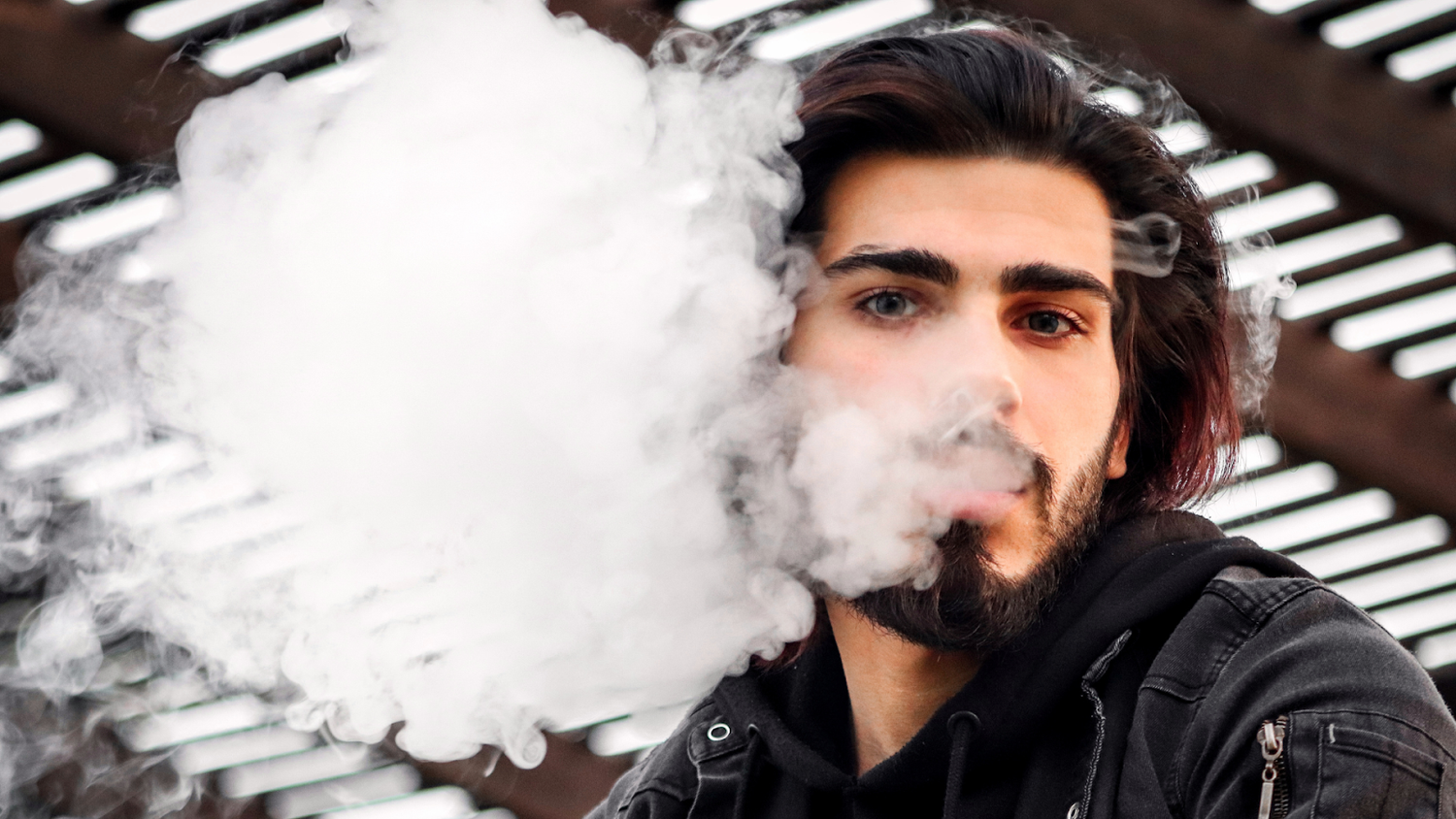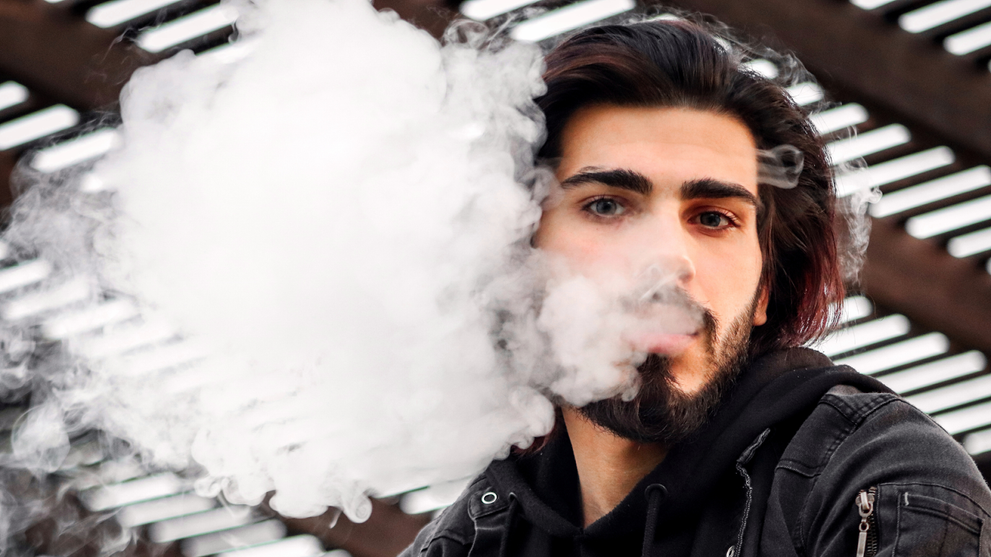Key Takeaways:
- Lung Recovery Timeline: Your lungs begin healing within days of quitting vaping, but full recovery depends on how long and how heavily you vaped.
- Healing Through Lifestyle: Lifestyle choices like hydration, exercise, and herbal support can significantly enhance the healing process.
- Support from Betterbrand: Betterbrand’s natural lung health products offer daily support for people looking to detox their lungs after vaping.
Vaping might seem like the "less harmful" choice compared to smoking, but the effects it has on your lungs are still very real. While not inhaling tar, you're still exposing your respiratory system to chemicals, synthetic flavors, and fine particles that can impair lung function over time. The good news? Your lungs are remarkably resilient and start healing the moment you quit.
At Betterbrand, we don’t follow trends – we create solutions backed by science, driven by nature, and trusted by thousands. With products used by over 250,000 customers and formulas developed by a doctor, we lead the way in respiratory support for smokers, vapers, and anyone who wants to breathe better naturally.
Understanding what that healing process looks like, how long it takes, and how to support it with clean, effective habits (and ingredients) can help you breathe easier.
In this piece, we’ll break down how long it takes for your lungs to heal from vaping, what impacts recovery, and how Betterbrand can support your journey.
What Happens To Your Lungs When You Vape?
Vaping may feel like a cleaner alternative to smoking, but it still has an impact on your lungs. The aerosols from vape devices often contain chemicals like propylene glycol, vegetable glycerin, flavorings, and nicotine. When inhaled, these substances can irritate the airways, dry out lung tissue, and reduce lung function.
Unlike cigarette smoke, vapor doesn't contain tar, but that doesn’t mean it’s harmless. Repeated exposure to vape aerosols can trigger inflammation in the lungs. Over time, this may result in coughing, shortness of breath, or chest tightness, especially in people who vape frequently.
Even without nicotine, many vapes include synthetic flavoring agents that can disrupt your respiratory system. Some of these compounds may interfere with how your lungs filter air and expel mucus, making it harder for them to do their job properly.
Ultimately, vaping compromises the lungs' ability to stay clean and healthy, which is why many ex-vapers wonder how long it will take to reverse that damage.
Can Your Lungs Heal After You Quit Vaping?
Yes, your lungs can heal after you quit vaping – but the extent and speed of recovery vary from person to person. Once you stop inhaling vape aerosols, your lungs clear mucus, reduce inflammation, and repair damaged tissue. This natural detox process begins within days and continues over weeks and months.
For many, the first noticeable improvement is in lung function. You might find it easier to breathe, experience less coughing, and notice better stamina during physical activity. These are signs that your lungs are starting to recover.
However, the healing process is gradual. While your lungs have impressive regenerative capabilities, full recovery depends on several factors, such as how long and how often you vaped and your overall health.
In the meantime, supporting your body with natural lung-cleansing habits, like staying hydrated, exercising, and using lung health supplements, can help speed up the recovery process.
How Long Does It Take For Your Lungs To Heal From Vaping?
The timeline for lung healing after quitting vaping isn’t one-size-fits-all. However, here’s a general breakdown of what many people experience:
- After 1 Week: Inflammation in the airways starts to decrease. Breathing may feel a bit easier, and coughing might lessen.
- After 1 to 3 Months: Lung function often begins to improve noticeably. The cilia (tiny hairs that help move mucus out of your lungs) start to repair, allowing your body to clear out irritants more efficiently.
- After 6 to 12 Months: Many former vapers report significantly better stamina and fewer respiratory symptoms. Depending on the extent of the previous damage, lung tissue may show signs of repair.
- After 1 to 3 Years: While some changes may take longer, studies suggest that many people’s lungs continue to recover, particularly if they maintain a healthy lifestyle and avoid further exposure to harmful substances.
So, can lungs heal after 3 years of vaping? In many cases, yes – but the degree of healing depends on how long and how heavily you vaped. Your lungs may not return to their “pre-vape” state entirely, but their function and capacity can improve dramatically over time.
During this healing journey, some people support their lungs with options like a lung detox routine or incorporating herbs for the lungs into daily routines.
What Affects the Healing Timeline?
Not everyone’s lungs recover at the same pace. Several factors play a role in how long it takes for your lungs to heal after vaping:
Duration And Frequency Of Vaping
If you occasionally vaped for a few months, your lungs may bounce back faster than someone who vaped daily for several years. The longer and more intensely you vaped, the more time your lungs may need to detox and repair.
Age And Overall Health
Younger individuals with good health and no pre-existing respiratory issues typically recover faster. Healthy lungs have a stronger ability to regenerate and flush out harmful residues.
Diet And Hydration
A nutrient-rich diet and proper hydration support your body’s natural detox systems. Antioxidants from fruits, vegetables, and herbal teas can help reduce oxidative stress in lung tissue.
Physical Activity
Cardio-focused exercises such as walking, swimming, and biking help expand your lungs, increase oxygen flow, and improve lung capacity – all of which contribute to healing.
Lung-Supporting Habits
Incorporating a daily tea for respiratory health or using mullein drops can help cleanse and soothe irritated lungs. Ingredients like mullein, ginger, and elderberry are traditionally used to support respiratory function.
What Do Lungs Look Like After Vaping vs. After Quitting?
Vaping and lung health have become closely linked topics of concern, especially as more people look into the long-term effects of inhaling vaporized substances. If you’ve ever wondered what your lungs look like during and after vaping, here’s what the evidence suggests:
Lungs After Vaping
When someone is actively vaping, the lungs may appear irritated or inflamed. While vapes don’t deposit tar like cigarettes, the chemicals and tiny particles in vapor can still build up over time. This can lead to increased mucus production, reduced elasticity in the lung walls, and slower clearance of airborne contaminants. On a microscopic level, the cilia – small hair-like structures that help keep lungs clean – can become damaged or immobilized.
Some people also experience “vaper’s cough” or mild chronic congestion, signs that the lungs work harder than usual to expel irritants.
Lungs After Quitting Vaping
Once vaping stops, your lungs can begin to clear out the buildup. Over time, inflammation decreases, and cilia recover, improving your lungs' ability to self-clean. In some cases, lung tissue can regenerate to a noticeable degree, especially if the damage isn’t severe.
People often report a return of energy, improved breathing, and less coughing – all signs that their respiratory system is repairing itself. During this process, many turn to natural support tools like mullein gummies or lung detox strategies to accelerate recovery.
Natural Ways To Support Lung Healing
Healing your lungs from vaping isn’t just about quitting – it’s also about giving your body the right tools to recover. Here are a few natural ways to support your respiratory system:
Stay Hydrated
Drinking enough water helps thin mucus in your lungs, making it easier for your body to expel toxins. Aim for consistent hydration throughout the day to keep things flowing.
Try Herbs Traditionally Used For Lungs
Herbs like mullein, ginger, thyme, and elderberry have long supported respiratory function. Products like herbs for lungs or mullein drops can be helpful additions to your routine.
Drink Lung-Supportive Tea
A warm, herbal tea for respiratory health can be a soothing way to deliver natural compounds that may help reduce inflammation and promote mucus clearance.
Get Moving
Regular aerobic exercise boosts lung capacity and helps flush out residual irritants through deeper breathing. Even light activities like brisk walking can be practical.
Use A Lung Health Supplement
A high-quality lung health supplement with elderberry, reishi, or mullein may support your body’s natural detox process and improve recovery.
How Betterbrand Can Help With Lung Detox
At Betterbrand, we believe that supporting your lungs during the detox process doesn’t have to be complicated – but it does need to be intentional.
Our lineup of lung-supportive products is designed for anyone looking to take a natural approach to respiratory recovery after vaping:
BetterLungs® Capsules
Formulated with mullein, elderberry, reishi, and pine bark, these lung health supplements support daily respiratory function and immune defense – perfect for ex-vapers easing their way back to clear breathing.
BetterLungs® Tea
This tea for respiratory health blends mullein, thyme, ginger, elderberry, and American ginseng – all ingredients traditionally used to help the lungs detox and relax.
Mullein Gummies & Drops
Our mullein gummies and mullein drops are convenient ways to incorporate mullein – a soothing herb known for its traditional use in clearing mucus and calming irritated airways – into your routine.
Final Thoughts
Quitting vaping is one of the best decisions you can make for your lungs – but healing takes time. Your lungs didn’t get stressed overnight, and won’t fully repair overnight either. The key is to stay consistent, support your body with the proper habits, and give your respiratory system the space it needs to recover.
Remember: improvements come in stages. You may feel better in just a few weeks, but real regeneration can continue for months or years. Whether you've vaped for a short period or several years, it's never too late to start healing.
By prioritizing hydration, staying active, and incorporating lung detox tools like herbs for lungs and lung health supplements, you give your body what it needs to bounce back.
At Betterbrand, we’re here to help support your recovery every step of the way.
Frequently Asked Questions About How Long It Takes For Your Lungs To Heal From Vaping
How can I tell if my lungs are healing after quitting vaping?
Signs that your lungs are healing may include reduced coughing, improved stamina, easier breathing, and better sleep quality. You might also notice you're less congested or have more energy during physical activity.
Is it too late to reverse the effects of vaping after several years?
It’s rarely “too late.” While your lungs may not return to their pre-vaping state entirely, many of the negative effects can improve with time – especially if you actively support lung health.
Can vaping cause long-term lung damage?
Long-term, frequent vaping may contribute to chronic inflammation and reduced lung function. While many effects can be reversible, persistent exposure could increase risk for long-term complications, especially when combined with other health factors.
Are nicotine-free vapes safer for lung recovery?
Nicotine-free vapes remove one harmful ingredient, but still contain chemical flavorings and solvents that can irritate lung tissue. Healing won’t begin until all forms of vaping are stopped.
What should I avoid while my lungs are healing from vaping?
Avoid smoking, secondhand smoke, polluted environments, and exposure to harsh cleaning chemicals or aerosols. These can slow down the recovery process and further irritate your lungs.
Do lungs detox themselves naturally, or do I need supplements?
Your lungs naturally detox over time, but supplements and supportive habits like hydration, herbs, and exercise may help the process along. Supplements aren't required but can be beneficial.
Can breathing exercises help my lungs recover faster?
Yes. Breathing exercises like diaphragmatic breathing or box breathing can improve lung capacity, increase oxygen flow, and help rebuild respiratory strength.
What’s the difference between lung cleansing and lung healing?
Lung cleansing often refers to aiding the removal of mucus and toxins, while lung healing involves tissue regeneration and inflammation reduction. Both go hand-in-hand but aren't the same.
Will quitting vaping improve my immune system too?
Yes, especially since vaping can impair the immune response in the lungs. Once you quit, your body is better equipped to fight off respiratory infections.
Can Betterbrand products be used long-term?
Betterbrand’s products are formulated to support ongoing lung and respiratory health. Many users take them regularly as part of a long-term routine, especially after quitting vaping or smoking.
Disclaimer: These statements have not been evaluated by the Food and Drug Administration. This product is not intended to diagnose, treat, cure, or prevent any disease.








